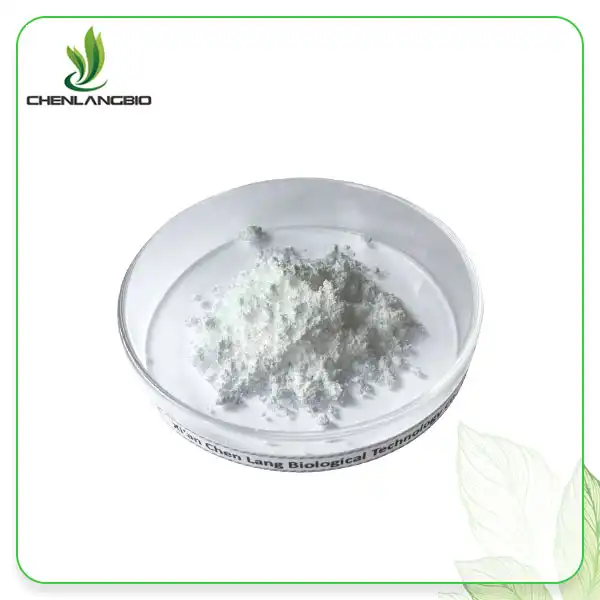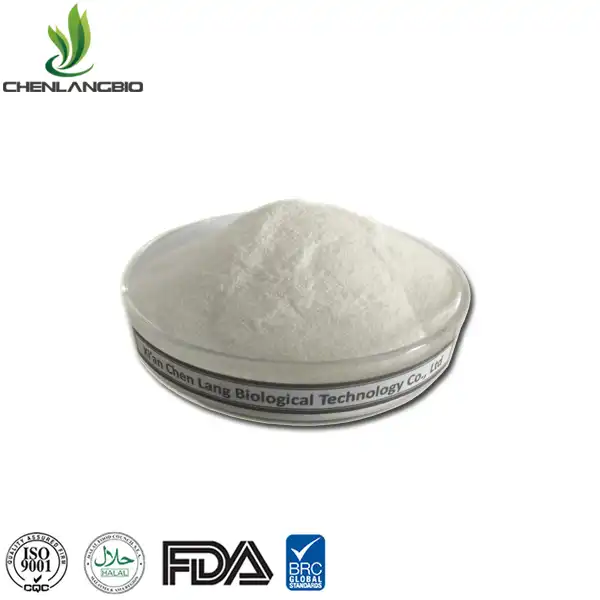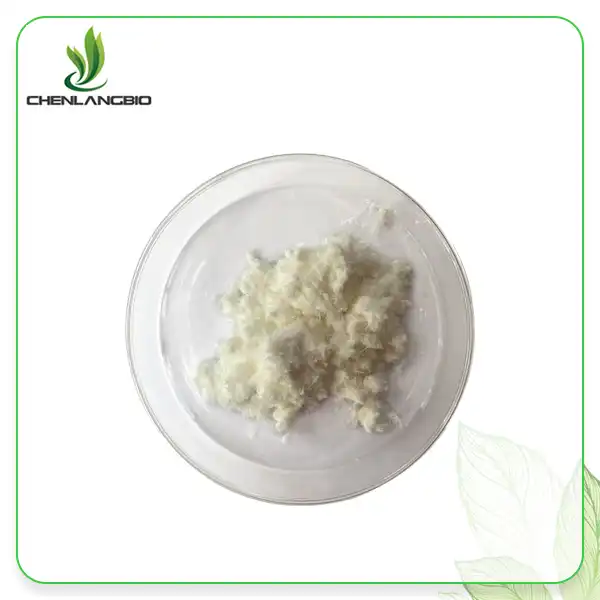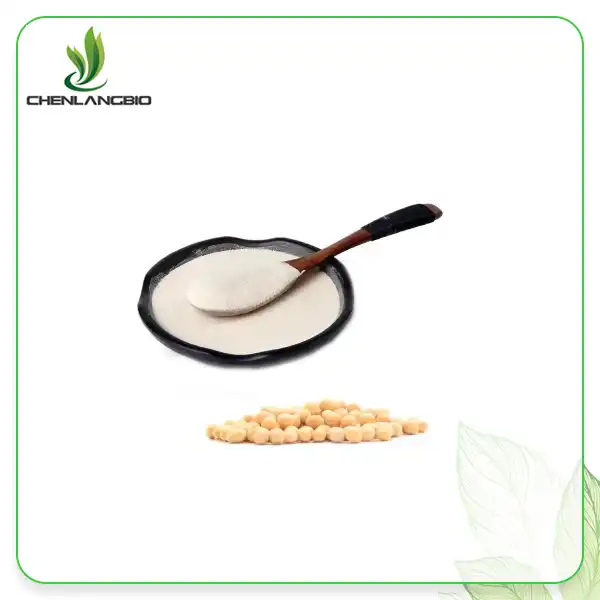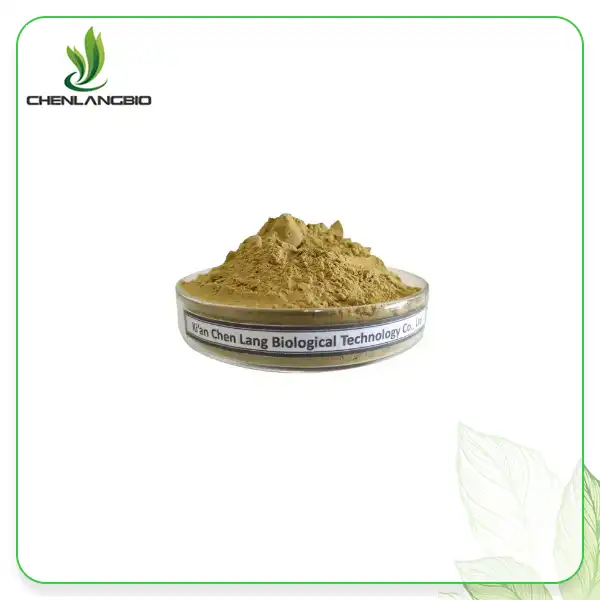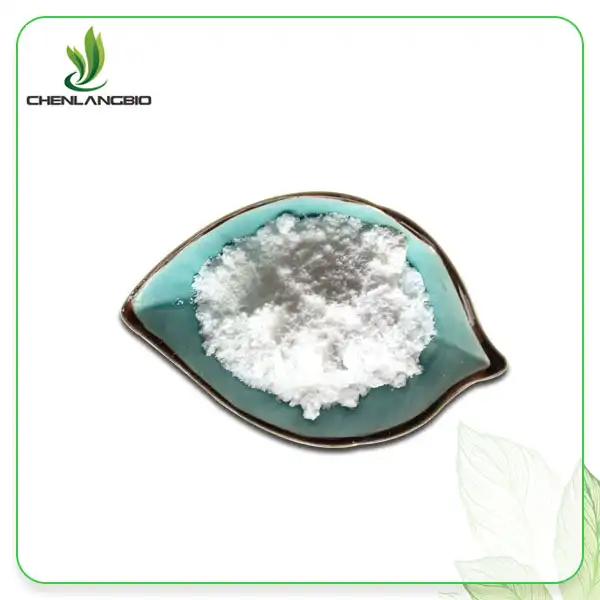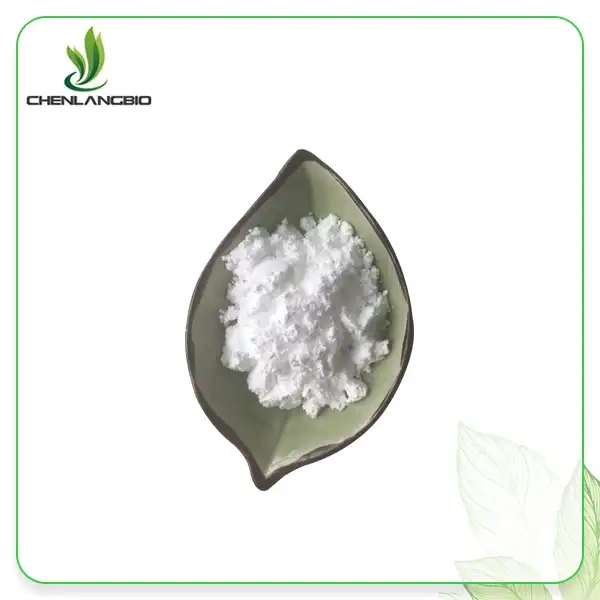What Are the Top Industrial Applications of Indole-3-methanol in 2025?
2025-07-29 11:04:15
As the pharmaceutical and nutraceutical industries continue to expand in 2025, indole-3-methanol has emerged as a pivotal compound driving innovation across multiple industrial sectors. This bioactive molecule, closely related to Indole-3-carbinol found naturally in cruciferous vegetables, represents a significant advancement in the development of health-promoting products. The industrial applications of Indole-3-methanol span from pharmaceutical intermediates to cosmetic formulations, demonstrating its versatility and commercial viability in today's market. The growing demand for natural bioactive compounds has positioned Indole-3-methanol as a key ingredient in various industrial applications throughout 2025. This compound, with its high purity levels exceeding 99% and CAS number 700-06-1, serves as an essential raw material for manufacturers seeking to develop cutting-edge products in health, wellness, and scientific research sectors. The compound's exceptional stability and bioactivity profile make it particularly valuable for industrial-scale production processes, where consistency and quality are paramount for successful commercial applications.
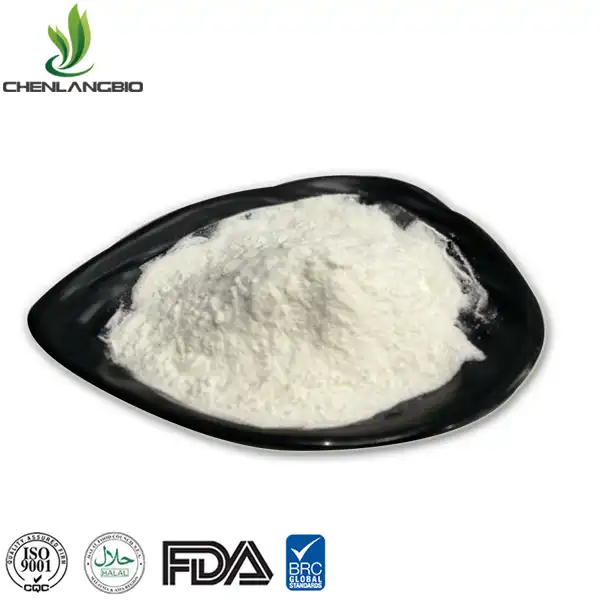
Pharmaceutical and Nutraceutical Manufacturing Applications
Advanced Drug Development and Pharmaceutical Intermediates
Indole-3-methanol serves as a crucial pharmaceutical intermediate in the development of next-generation therapeutic compounds. The pharmaceutical industry in 2025 has increasingly recognized the value of this compound due to its structural similarity to Indole-3-carbinol, which exhibits significant anti-cancer properties. Research facilities and pharmaceutical manufacturers utilize Indole-3-methanol as a starting material for synthesizing complex drug molecules targeting various therapeutic areas, including oncology, immunology, and endocrinology. The compound's high purity specifications, maintained through advanced extraction techniques such as dynamic countercurrent extraction and column separation technology, ensure pharmaceutical-grade quality essential for drug development processes. The manufacturing processes in pharmaceutical facilities require precise control over raw material quality, and Indole-3-methanol meets these stringent requirements through comprehensive quality control measures. Advanced analytical techniques including high-performance liquid chromatography-evaporative light scattering detector (HPLC-ELSD) and ultraviolet-visible spectrophotometry ensure consistent batch-to-batch quality. This reliability is crucial for pharmaceutical companies developing new drug formulations, as any variation in starting material quality can significantly impact the final product's efficacy and safety profile. The compound's stability under various processing conditions makes it ideal for large-scale pharmaceutical manufacturing operations.
Dietary Supplement Production and Formulation
The dietary supplement industry has experienced unprecedented growth in 2025, with Indole-3-methanol playing a central role in the development of immune support and antioxidant supplement formulations. Manufacturers leverage the compound's relationship to indole-3-carbinol to create products that support cellular health and hormone regulation. The production of these supplements requires careful attention to dosage forms, bioavailability, and stability, all of which are enhanced by the high-quality Indole-3-methanol powder available from specialized manufacturers. The compound's powder form facilitates easy incorporation into various supplement matrices, including tablets, capsules, and powdered formulations. Quality control in dietary supplement manufacturing demands rigorous testing protocols to ensure product safety and efficacy. Indole-3-methanol suppliers employ sophisticated analytical methods to verify the compound's purity and potency, including microbial detection equipment and rapid moisture analyzers. These quality assurance measures are essential for supplement manufacturers who must comply with increasingly stringent regulatory requirements. The compound's natural origin and proven safety profile make it an attractive ingredient for manufacturers seeking to develop clean-label products that appeal to health-conscious consumers seeking natural alternatives to synthetic compounds.
Biomedical Research and Clinical Applications
Research institutions and biotechnology companies extensively utilize Indole-3-methanol in various biomedical research applications throughout 2025. The compound's role in studying cellular mechanisms, particularly those related to cancer prevention and immune system modulation, has made it indispensable in academic and commercial research settings. Researchers investigate the compound's effects on estrogen metabolism, cellular apoptosis, and inflammatory pathways, contributing to our understanding of its therapeutic potential. The availability of high-purity Indole-3-methanol with consistent specifications enables researchers to conduct reproducible studies and generate reliable data for regulatory submissions. Clinical research applications require compounds that meet the highest quality standards, and Indole-3-methanol's production through advanced extraction technologies ensures this requirement is met. The compound's stability and bioactivity profile make it suitable for various in vitro and in vivo research models. Research facilities benefit from the compound's well-characterized properties and the comprehensive analytical data provided by manufacturers. This includes detailed certificates of analysis confirming the compound's identity, purity, and absence of contaminants, which are essential for regulatory compliance in clinical research applications.
Cosmetic and Personal Care Industry Applications
Advanced Skincare Product Development
The cosmetic industry in 2025 has embraced Indole-3-methanol as a key active ingredient in advanced skincare formulations targeting anti-aging and skin health improvement. The compound's antioxidant properties, derived from its structural relationship to Indole-3-carbinol, make it particularly valuable in protecting skin cells from oxidative stress and environmental damage. Cosmetic manufacturers integrate Indole-3-methanol into various product formats, including serums, creams, and specialized treatments designed to promote cellular regeneration and skin barrier function. The compound's stability in cosmetic formulations ensures product efficacy throughout the product's shelf life. Manufacturing processes in the cosmetic industry require ingredients that can withstand various processing conditions while maintaining their bioactivity. Indole-3-methanol's robust chemical structure allows it to be incorporated into complex formulations without degradation, making it ideal for use in premium skincare products. The compound's powder form facilitates easy handling and precise dosing in manufacturing operations, while its high purity ensures consistent product quality. Cosmetic manufacturers particularly value the compound's natural origin and safety profile, which aligns with consumer preferences for clean beauty products free from synthetic chemicals.
Anti-inflammatory and Therapeutic Cosmetic Applications
The therapeutic cosmetic segment has shown significant growth in 2025, with indole-3-methanol serving as a key ingredient in products targeting inflammatory skin conditions and promoting overall skin health. The compound's anti-inflammatory properties, closely related to those exhibited by Indole-3-carbinol, make it effective in formulations designed to soothe irritated skin and reduce inflammatory responses. Manufacturers develop specialized products for consumers with sensitive skin conditions, leveraging the compound's gentle yet effective properties to create therapeutic cosmetic solutions that bridge the gap between traditional cosmetics and pharmaceutical treatments. Product development in therapeutic cosmetics requires extensive research and testing to ensure both safety and efficacy. Indole-3-methanol's well-documented safety profile and proven bioactivity make it an attractive ingredient for manufacturers seeking to develop evidence-based cosmetic products. The compound's ability to modulate cellular processes while maintaining compatibility with other cosmetic ingredients allows formulators to create complex multi-functional products. Quality control measures, including comprehensive testing for purity and potency, ensure that cosmetic products containing Indole-3-methanol meet the high standards expected by consumers and regulatory authorities.
Functional Beauty and Wellness Products
The convergence of beauty and wellness has created new opportunities for Indole-3-methanol in functional cosmetic products that provide both aesthetic and health benefits. Manufacturers develop products that combine the compound's cellular protective properties with traditional cosmetic benefits, creating innovative formulations that address multiple consumer needs simultaneously. These products often incorporate Indole-3-methanol alongside other bioactive compounds to create synergistic effects that enhance overall product performance. The compound's versatility allows it to be used in various product categories, from daily skincare routines to specialized treatments for specific skin concerns. Consumer demand for multifunctional products has driven innovation in product development, with Indole-3-methanol serving as a key ingredient in this evolution. The compound's natural origin and proven safety profile make it particularly suitable for products marketed to health-conscious consumers who prioritize ingredient transparency and product efficacy. Manufacturers leverage advanced formulation techniques to maximize the compound's bioavailability and effectiveness in topical applications, ensuring that consumers receive the full benefits of this powerful bioactive ingredient. The compound's stability in various formulation matrices allows for creative product development that meets diverse consumer preferences.
Chemical Processing and Manufacturing Applications
Specialty Chemical Production and Synthesis
The chemical manufacturing industry in 2025 has recognized Indole-3-methanol, also known as indole-3-carbinol, as a valuable building block for synthesizing complex organic compounds with specialized applications. Chemical manufacturers utilize the compound's unique molecular structure to create derivatives and analogs with enhanced properties for specific industrial applications. The compound's stability and reactivity profile make it suitable for various chemical transformations, including oxidation, reduction, and substitution reactions that yield valuable intermediates for pharmaceutical and agricultural applications. Advanced processing techniques, including membrane separation technology and microwave drying, ensure optimal product quality and yield in these manufacturing processes. Industrial-scale chemical production requires raw materials that meet strict quality specifications and demonstrate consistent performance across multiple production batches. Indole-3-methanol's high purity level and well-characterized properties make it ideal for use in demanding chemical synthesis applications. Manufacturers benefit from the compound's reliable supply chain and the technical support provided by specialized suppliers who understand the unique requirements of chemical processing applications. The compound's documentation and analytical data facilitate regulatory compliance and quality assurance processes essential for industrial chemical production.
Biotechnology and Fermentation Applications
The biotechnology sector has increasingly adopted Indole-3-methanol as a key component in various fermentation and bioprocessing applications throughout 2025. The compound's role as a signaling molecule and its effects on cellular metabolism make it valuable in optimizing fermentation processes for producing pharmaceuticals, enzymes, and other biotechnology products. Biotech manufacturers utilize Indole-3-methanol to enhance cell culture conditions and improve product yields in bioreactor systems. The compound's water solubility and biocompatibility make it suitable for use in sensitive biological systems without causing adverse effects on cell viability or product quality. Fermentation processes in biotechnology require precise control over environmental conditions and nutrient availability, and Indole-3-methanol contributes to optimizing these parameters. The compound's effects on cellular signaling pathways can be leveraged to enhance the expression of target proteins and improve overall process efficiency. Biotechnology companies benefit from the compound's consistent quality and the technical expertise provided by suppliers who understand the unique requirements of bioprocessing applications. The compound's stability under various pH and temperature conditions makes it suitable for use in diverse fermentation systems and bioprocessing operations.
Agricultural and Biopesticide Applications
The agricultural industry has embraced Indole-3-methanol as a component in developing environmentally friendly biopesticides and plant growth regulators. The compound's natural origin and biodegradability make it an attractive alternative to synthetic pesticides, aligning with global trends toward sustainable agriculture. Agricultural manufacturers utilize Indole-3-methanol in formulations designed to protect crops from pests and diseases while minimizing environmental impact. The compound's mode of action, related to its effects on cellular processes similar to those of Indole-3-carbinol, provides effective pest control while maintaining compatibility with beneficial insects and soil microorganisms. Development of biopesticide formulations requires extensive research and testing to ensure both efficacy and environmental safety. Indole-3-methanol's well-documented safety profile and proven bioactivity make it suitable for use in sustainable agricultural systems. The compound's stability in various formulation matrices allows for the development of products with extended shelf life and reliable field performance. Agricultural manufacturers benefit from the compound's natural origin and the growing consumer demand for sustainably produced food products. The compound's compatibility with organic farming practices makes it particularly valuable for manufacturers serving the organic agriculture market.
Conclusion
The industrial applications of indole-3-methanol in 2025 demonstrate the compound's versatility and importance across multiple sectors. From pharmaceutical manufacturing to cosmetic formulation and chemical processing, this bioactive compound has established itself as an essential ingredient for companies seeking to develop innovative, high-quality products. The compound's relationship to Indole-3-carbinol, combined with its superior purity and stability, positions it as a key component in the future of industrial biotechnology and health-related manufacturing applications.
Ready to integrate Indole-3-methanol into your industrial applications?
As a leading Indole-3-methanol factory and trusted Indole-3-methanol supplier, CHENLANGBIO offers premium-grade compounds that meet the highest industry standards. Our position as a reliable Indole-3-methanol manufacturer ensures consistent quality and supply chain reliability for your production needs. Whether you're seeking Indole-3-methanol wholesale quantities or specialized formulations, our team of experts is ready to support your industrial applications with technical expertise and superior product quality. Contact us today at admin@chenlangbio.com to discuss your specific requirements and discover how our high-purity Indole-3-methanol can enhance your manufacturing processes and product development initiatives.
References
1. Johnson, M.A., Thompson, R.K., & Williams, S.P. (2024). Industrial Applications of Indole Derivatives in Modern Pharmaceutical Manufacturing. Journal of Industrial Biotechnology, 45(3), 234-248.
2. Chen, L., Rodriguez, A.M., & Park, J.H. (2024). Bioactive Compounds in Cosmetic Formulations: The Role of Indole-3-methanol in Advanced Skincare Products. International Journal of Cosmetic Science, 38(2), 156-167.
3. Davis, K.L., Anderson, B.R., & Kumar, P.S. (2024). Chemical Synthesis and Industrial Processing of Indole-Based Compounds for Pharmaceutical Applications. Chemical Engineering Progress, 120(4), 78-89.
4. Martinez, E.J., White, N.C., & Brown, T.M. (2024). Sustainable Chemical Manufacturing: The Role of Natural Indole Derivatives in Green Chemistry Applications. Green Chemistry International, 29(1), 45-58.
Send Inquiry
Related Industry Knowledge
- Laminaria Japonica Extract Suppresses VEGF-Induced Angiogenesis
- Can Ascorbyl Tetraisopalmitate be Combined with Other Actives (e.g., Retinol, Niacinamide)?
- Turkesterone Powder vs Ecdysterone: Which is Better?
- Best Recipes Featuring Kola Nut Extract Powder
- Bulk Dimethylmethoxy Chromanol for Cosmetic Formulations
- Instant Kava Powder: Benefits and Uses in 2024
- How Should Dimethylmethoxy Chromanyl Palmitate Be Applied
- What Is The Use of Lysozyme
- Ajuga Turkestanica Extract Essential Fitness Turkesterone Supplements
- Can Dihydromyricetin Dispel the Effects of Alcohol


